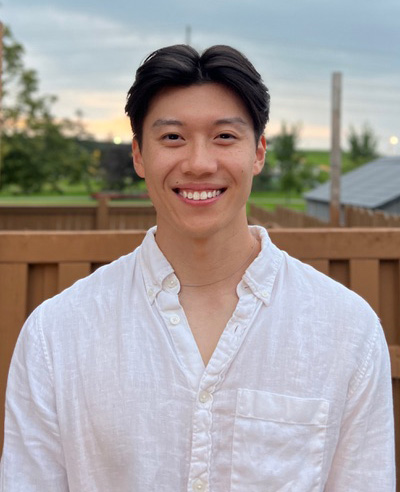1. Welcome back to the TBCRU, can you remind our readers who are you and tell us a little bit about yourself.
Hi, I’m April. I am in my third year of Ph.D. in Medical Biophysics at Western University, working under the supervision of Dr. Stewart Gaede at the London Regional Cancer Centre. I previously completed my Bachelor’s degree in Medical Biophysics from Western University.
2. As a senior researcher, why is the TBCRU Studentship Award important to you, how does it allow you to advance your research?
Now that I am in my third year of graduate studies, this means more time to spend on research, presentations and write-ups, rather than coursework. Senior year researchers must have the flexibility of being entirely focused and immersed in their work. I am thankful for this award and so appreciative to anyone who has donated to BCSC – you’ve helped support my research, as well as the research of other students!
3. In a few lines, can you remind us what you are doing and what problems do you hope to solve with your research?
My research focuses on improving the way we deliver radiation, specifically to patients with breast cancer on the left side. Firstly, I am working on evaluating methods that will spare the heart and other critical organs from radiation. The methods I am focusing on include deep-breath techniques that move the heart out of the way during radiation, and volumetric modulated arc radiotherapy, which delivers an exact dose of radiation using 360-degree rotation. Secondly, I am assessing post-radiation inflammation in the heart with two imaging techniques: Positron Emission Tomography and Magnetic Resonance Imaging (PET/MRI).
4. Since we last spoke, have there been any changes to or advancements in your research?
The clinical trial that assesses post-radiation cardiac inflammation launched this year, and we are currently recruiting patients. Regarding the Left-sided Breast Cancer Radiotherapy project, preliminary data has been analyzed and presented in the medical biophysics seminar series and will be presented at a conference coming soon!
5. Have you had an opportunity to present your research to your peer researchers? Was it at a national or international meeting or in some other way? Did that presentation setting help you share your breast cancer research with the broader scientific community?
I’ve had many great opportunities to share my research with the community, such as Lawson’s Students Presentation Series, London Health Research Day and the American Association of Physicists in Medicine Annual Meeting.
6. Now that you have had some more time with your research, how do you think your research will be applied in a real-world situation?
My research will allow us to consider new techniques that minimize or eliminate heart complications in future breast cancer patients. It will also potentially provide a framework for developing a new clinical guideline for cardiac dose limits during breast radiotherapy and provide a non-invasive technique to image patients repeatedly post-radiation, to evaluate their outcomes.
7. Tell us about your involvement in the Breast Cancer Society of Canada fundraising events (Dress for the Cause, Mother’s Day Walk)? What about your participation in other Breast Cancer Society of Canada donor events or tours, how has that impacted your perspective on breast cancer research?
Every year, my fellow TCBRU trainees and I participate in the Mother’s Day Walk and Dress for the Cause, which both supports Breast Cancer. It is so lovely to see that the breast cancer awareness community keeps growing each year; I notice these events don’t just involve patients and their families, but breast cancer physicians and researchers too – the scope is enormous!
8. What are you currently reading, watching or listening to outside of the lab?
I am such a foodie – I love taking my friends out to try different restaurants and watching cooking shows on Netflix.
Support researchers like April Chau by considering a donation to the Breast Cancer Society of Canada. Find out how you can help fund life-saving research, visit bcsc.ca/donate today.




